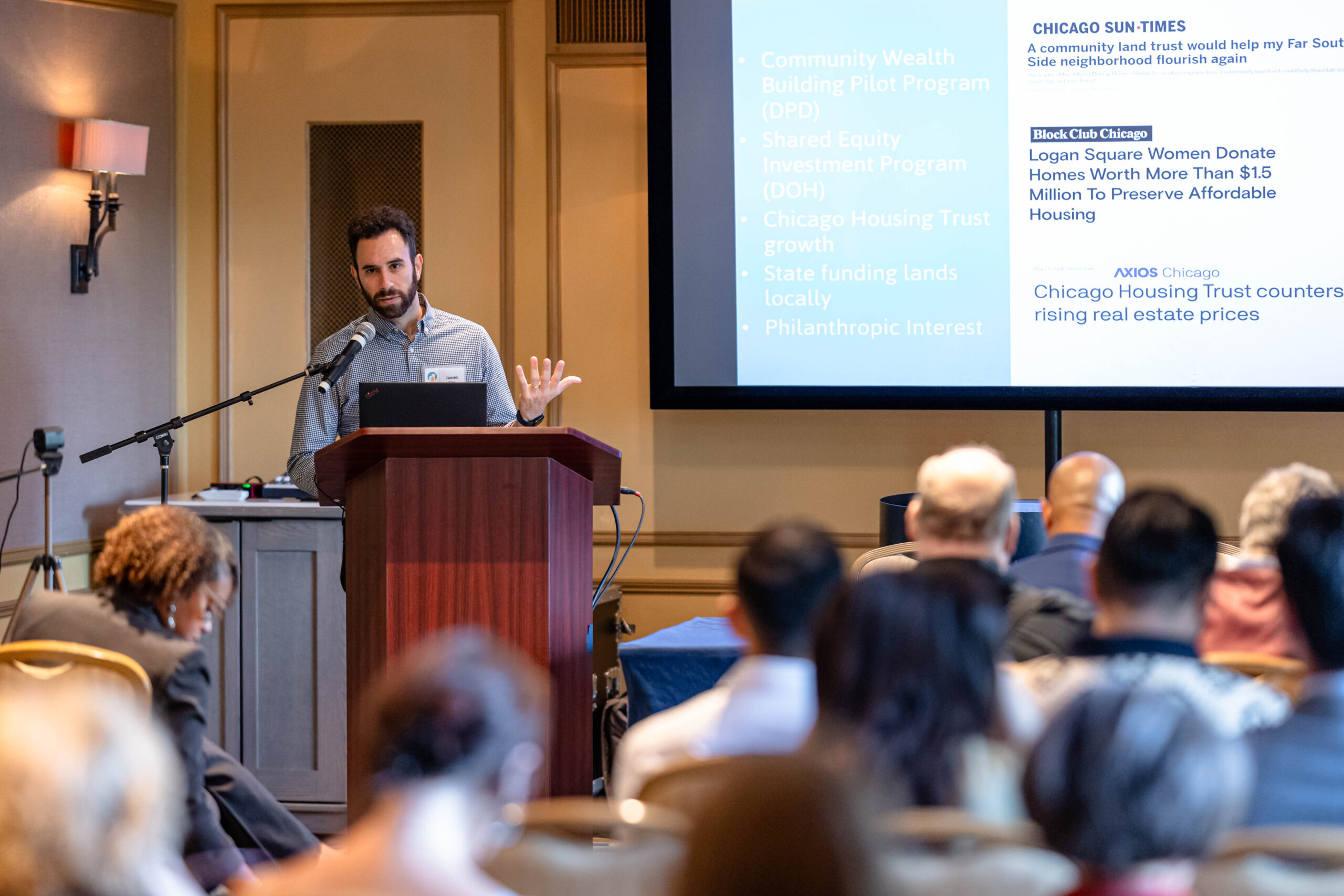Grounded Solutions Network (GSN) is committed to addressing one of the most pressing issues in housing today: the systemic barriers that prevent low-income communities and communities of color from achieving long-term housing stability and building wealth. Community Land Trusts (CLTs) and shared-equity housing models, which separate land ownership from housing ownership, have long been proven tools to provide affordable, sustainable homeownership, particularly for low-income families. These models preserve affordability for future generations while enabling homeowners to build equity. However, despite their potential, many of these homes are still taxed at the full market rate, undermining their affordability and wealth-building potential.
The disparities in the US housing market are stark. Black and Latino homeowners face an over-taxation of up to 13% more than white homeowners, despite facing similar or lower access to public services and benefits. At the same time, property tax systems often fail to recognize the unique characteristics of CLTs and shared-equity homes—properties that are not part of the open market. These homes, which have limited resale price and appreciation due to deed restrictions and land-lease structures, are taxed as if they were unrestricted market properties, adding undue financial burden to homeowners.
This misalignment between property taxes and the value of these homes directly threatens the success of CLTs and shared-equity housing models. Homeowners are often forced to bear the cost of inflated tax assessments that erode their ability to build equity, maintain their homes, and achieve financial stability. This makes it harder for the very communities these models aim to serve to thrive.
Recognizing this opportunity to advance racial equity and ensure lasting affordability, GSN has launched a national policy initiative aimed at securing equitable tax assessments for CLTs and shared-equity housing. By advocating for tax laws that treat these homes as community assets, GSN is pushing for a change that would require property tax assessments to reflect the true, restricted value of these homes—not their unrestricted market value. This would reduce the tax burden on homeowners, creating a more level playing field and allowing CLTs to fulfill their potential as tools for long-term affordability, wealth-building, and stability.

By influencing policy at the state level, GSN is taking bold steps to address the systemic inequities in the housing sector. The initiative’s goal is clear: to ensure that CLTs and shared-equity housing models can scale across the country, particularly in communities of color, and provide a pathway to homeownership that is not only affordable but sustainable.
Through its advocacy, GSN has already influenced tax policy in states such as California, Colorado, Florida, Massachusetts, North Carolina, Texas, and Washington. These states have successfully implemented tax reforms that align with GSN’s vision, demonstrating bipartisan support and creating momentum for change nationwide. The initiative has already resulted in clear policy wins that reduce the tax burden on shared-equity homeowners and preserve the affordability of homes within these models.
The long-term impact of GSN’s work could be transformative. By ensuring that CLTs and shared-equity homes are taxed according to their market price, GSN is creating an environment where Black and Latino families can not only access homeownership but also build lasting wealth. The policy changes that GSN is advocating for would increase access to mortgage financing, particularly through Fannie Mae and Freddie Mac, which have historically underserved Black homeowners. Lower property taxes and clearer tax provisions will open up homeownership opportunities for families that have been systematically excluded from the benefits of property ownership for generations.
In the next five to ten years, if successful, GSN’s policy initiative will ensure that CLTs and shared-equity models are a recognized and scalable solution for racial equity and wealth-building in Black communities. By reducing the tax burden and promoting affordability, these models will serve as a pathway to homeownership that offers not just a roof over one’s head, but the ability to create intergenerational wealth and stability.

As a member-based organization, GSN works closely with its 250+ members across the country—local leaders who are directly engaged in the formation and management of CLTs. These members will play a crucial role in advocating for policy reforms at the state and local levels. By leveraging their expertise, as well as GSN’s technical assistance, the initiative will engage state policymakers and local stakeholders to push for changes that are both impactful and sustainable.
The opportunity to scale CLTs and shared-equity housing models, while simultaneously ensuring that these homes are taxed equitably, is within reach. GSN’s national policy initiative stands to transform the landscape of affordable housing by ensuring that the true value of CLTs and shared-equity homes is recognized by tax systems across the country. By pursuing this path, GSN is helping to create a future where Black homeowners, and homeowners of color, can access the stability, security, and wealth-building potential that homeownership is meant to provide.
Valuing Homes in Black Communities
Homes in Black majority neighborhoods are undervalued by 23% on average compared to similar homes in other neighborhoods. Structural innovations that redesign our markets could create a more equitable housing market. To support new ideas, Economic Architecture and Brookings are mapping innovations across the US and invite innovators to step forward and apply to the Valuing Homes in Black Communities Challenge.
